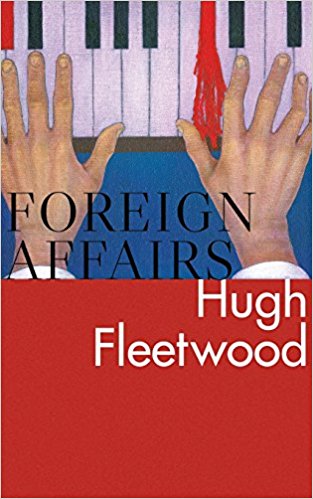 By HUGH FLEETWOOD (Valancourt Books; 1974/2015)
By HUGH FLEETWOOD (Valancourt Books; 1974/2015)
Here we have what might be termed the thinking man’s MISERY. The third novel by England’s brilliant (and shamefully underrated) Hugh Fleetwood, it involves a famous pianist stalked by an odd young man, an account enlivened by Fleetwood’s virtuosic storytelling and psychological acuity. As in most all his novels, it’s the unquiet psyches of its characters (not just the stalker) that provide the true driving force of FOREIGN AFFAIRS.
The pianist in question is Paolo Levin, an American based (like the author) in Rome, and his stalker a guy named Ralph, who is likewise a transplanted American. Ralph, who claims to be in love with Paolo, lives with his sister Maggie—who he, bizarrely, wants to marry Paolo. Even more bizarre, the latter finds himself going along with Ralph’s wishes, initiating an ill-advised sexual relationship with Maggie that only accentuates the sense of damnation hovering over them all.
Paolo, we learn, is suffused with guilt over the death of his brother Christopher, apparently via suicide. This is significant because Ralph and Maggie have a connection with Christopher, whose death becomes the unlikely lynchpin around which this increasingly bizarre drama comes to pivot.
Fleetwood, as he demonstrated in novels like THE GIRL WHO PASSED FOR NORMAL and THE ORDER OF DEATH, has a gift for creating consistently unpredictable narratives out of material that would probably seem far-fetched (to say the least) in the hands of just about any other author. Among the most potentially outrageous happenings in FOREIGN AFFAIRS is a mid-book abduction of Paolo by Ralph in which the former is tied up and Ralph threatens to devour the instruments of Paolo’s livelihood: his hands.
Plot descriptions of this book tend to overemphasize that passage, making the novel out to be an abduction horror story a la the aforementioned MISERY, but in fact it’s just a portion of a three part psychodrama in which the power dynamics continually shift, and violence and even murder are constant threats. Certainly those are the ingredients of any number of literary thrillers, but they’re utilized here in a manner unique to Hugh Fleetwood, whose horrific universe is utterly distinct.
